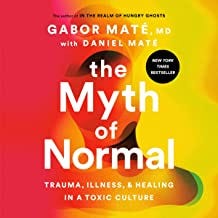Revisioning Revision
Why you might want to rewrite your life
Welcome to Pocketful of Prose. I so appreciate this growing community. It was joyous to see such a lively conversation arise last week around rest and a balanced reading diet. Thank you for reading and responding to each other’s comments. If you like spending time here, please click the heart at the bottom of the post.
I took this picture of the butterfly visiting the lilacs, while I was visiting with a good friend this week. As we walked, I talked about how I was feeling, not so great, and how I wanted to feel, more at peace. Our conversation reminded me that I could accept my feelings without shame, and at the same time, I could rewrite my internal dialogue in a way that might open me up to feeling better.
Today’s pocket is about the art of revision, and it’s not just for writers, it’s for anyone who wants to learn about how revisiting our stories might allow us to lead more hopeful, fulfilling lives.
I teach a creative writing class to adults at our local art center. Part of the reason I teach the class is that I’m following Natalie Goldberg’s advice; teaching a class on writing is one way to ensure that I’ll stay engaged in writing practice myself. I was once a student of this same class. I showed up every week, pen in hand, not having done any writing during the week. By the fourth week, one of the older gentlemen in the class, looked at me and said, “Why do you never do the homework? Your story is not going to write itself.” It was abrupt and a little inappropriate, but it was truthful. The next week, I came to class with something I scribbled down twenty minutes prior because I didn’t want to show up empty handed and face the wrath of my intrusive classmate. Over time, with the help of teachers like Natalie Goldberg and really good prompts, I did adopt a writing practice. Now, I don’t write because someone is bullying me to do so. I write because it has become a central part of who I am.
I write and I teach writing, and my memoir writing class is a joy. Students in the class range from their early twenties to their late seventies. In that sacred space, housed in the Corbin Art Center, built over a century ago, we share our stories and our lives, and we are seen. This past week, I taught my class as I normally do on Wednesday night. Then, on Thursday night, I attended a storytelling event at our local library, put together by a group called Pivot, a group of people who believe, like me, that stories connect us, and that sharing them is worthy of our time. It was a lovely surprise for me that one of my former creative writing students performed their story that evening. It was a story that they had shared in our creative writing class this past winter, but it was also a new version. As I listened, I could tell that they had taken it through many revisions, creating a version that was even funnier, more polished and more true than their original draft.
Revision gets a bad rap. It’s associated with diagramming sentences, demands of perfect spelling and ruthless proofreading, but that’s like confusing the bread baked at Subway and its accompanying smells, with the homemade Sourdough bread that comes out of your own oven, made from a culture you have been feeding for years. Technically they are both bread, but they don’t look the same. They don’t smell the same, and thankfully they don’t taste the same.
The poet Mary Sarton once said, “Revision is not going back and fussing around, but going forward in the process of creation.” You tell a story, and then you revisit it, and when you revisit it, sometimes some pretty important things come up. Revision is choosing which parts of our story to keep and which parts we can let go of. It is also choosing where we give our attention.
One of my first pockets was inspired by Jimmy Santiago Baca’s poem, “Who Understands Me But Me?” Baca wrote this poem in the 1970’s when he was in prison on drug related charges. His poem is about finding ourselves in the quietest and noisiest of places, when all else seems to have forsaken us. It is about knowing that we will be okay because who we are at the core is something that no one can take away from us.
It is so important for us to tell our stories, but it might be even more important to revisit them. Revision allows us to rethink the parts of our story we may have kept small or hidden, the parts of the story we didn’t think were important but turned out to be. At the core, we may always be the same, but we can shift our thinking about things and situations. This is hopeful, really, because it means we can change and heal. It also means that people who hold beliefs that might be harmful to themselves or others or the planet, can change too.
Revision can change the world.
In her On Being interview with Ada Limón, Krista Tippett, asked the poet laureate to read two poems. One was titled “Before” and the other was titled “Joint Custody.” Both poems were about Ada’s experience of her parents’ divorce, but one was written at least five years after the other one. In “Before,” Ada’s first telling of this story, she describes “the hazardous bliss before you know what you would miss.” She is looking at her situation from the lens of loss. Over five years later, in a retelling of the same story, she writes, “Why did I never see it for what it was: abundance? Two families, two different kitchen tables, two sets of rules, two creeks, two highways, two stepparents with their fish tanks or eight-tracks or cigarette smoke or expertise in recipes or reading skills.” When Ada revisits her story, she is able to see what she missed the first time. She sheds more light onto it, noticing things she didn’t see before. Perhaps, she also chooses to shift her attention.
In the Spring, I got to take a course with Ada called How to Write a Poem, and the fruits of this course have been bountiful. One of the writing prompts she shared with us was something she calls the brother/sister or reversal prompt. She asked us to think about a piece of writing that we consider to be an epitome piece for us, a piece that basically sums up who we are and to turn that piece on its head. I just finished Gone Girl, the book I was reading to escape, and the twists and reversals kept me riveted. But twists and reversals are a much scarier concept in real life, because basically we are being asked to take something we have identified as true and to consider that perhaps it might be less true than we thought. It requires us to sit and think and write in a world that is a little more gray.
When I sat in Ada’s workshop, I reflected on our experience fostering. Here’s my brother/sister/reversal of our experience. Here’s what I did not say in my first drafts about our experience.
What I did not say was that there was a night I looked across at Dan in the Minneapolis airport and said I wasn’t sure I could love Mateo as much as I loved the other two. What I did not say was that when I learned the news that Mateo was returning to his birth parents, I didn’t feel distraught, I didn’t feel grief, I felt a certain sense of relief, that while everything might not be okay for Mateo, it would be okay for me and for my family. What I did not say was how difficult it was sometimes that Mateo would always choose his birth parents over us. What I did not say was that Mateo helped me to grieve the loss of our third pregnancy. He taught me to desire to be my own person again, to want to be untethered.
I am working on a memoir about our experience fostering. Revisiting my story allows me to tell it in a way that allows for nuance, that respects that our experience was not all black or white. Revision allows me to write a different version of the story that is equally true to my other drafts, to paint a world that is a little more gray.
I wonder what would happen if we allowed ourselves more nuance, if we lived in a world where we could be more open to the possibility of not being nailed to our convictions, if we allowed ourselves to question more, to reconsider something we always took at face value. It’s scary but it’s also liberating, no?
In “The Dangers of a Single Story,” Chimamanda Adichie says that “the problem with stereotypes is not that they are untrue, but that they are incomplete.”
Revision allows us to write stories of ourselves and others that are more complete.
I sometimes struggle with anxiety, and over the past couple of weeks, it has been kicking my butt a bit. I’ve discovered a new podcast called The Anxiety Slayer which is like a balm for me. In an episode I listened to this week, Ananga Sivyer talks about Ernst Wilhelm, and what he calls the work of Mars, looking with an adult eye and understanding at the things are parents said and realizing they were never absolutely wrong or right about anything. “Anxiety can make us black or white.” We can “sort through what are parents said, with the mindset we have now- keep what is helpful, and discard the rest, it isn’t just black or white.” We can revise our story.
Dr. Gabor Maté, in his book the Myth of Normal, Trauma, Illness and Healing in a Toxic Culture, seems to suggest that revisiting our stories can even heal us. “Seeing trauma as an internal dynamic grants us much-needed agency.” If “trauma is what took place inside us as a result of what happened, in the sense of wounding or disconnection, then healing and reconnection become tangible possibilities.” In other words, if we can revisit our stories, we might reclaim our health.
Telling our stories is powerful. Revisiting them, revising the way we tell them, considering new possibilities and new ways forward, that might just be enough to heal us all.
What resonates with you today? What is your relationship with revision? What story are you telling a little differently these days? What are you reading that is making you think? I hope you can join us for some conversation in the comments.







I’m so glad. I appreciate that feedback especially since this was one I wasn’t sure about it in some ways. My writing instructor’s advice was about revision this week and she said that when we go back to our work, we should breathe love into it. I kind of like that idea.
I love the idea of revision as going forward, not going backward.